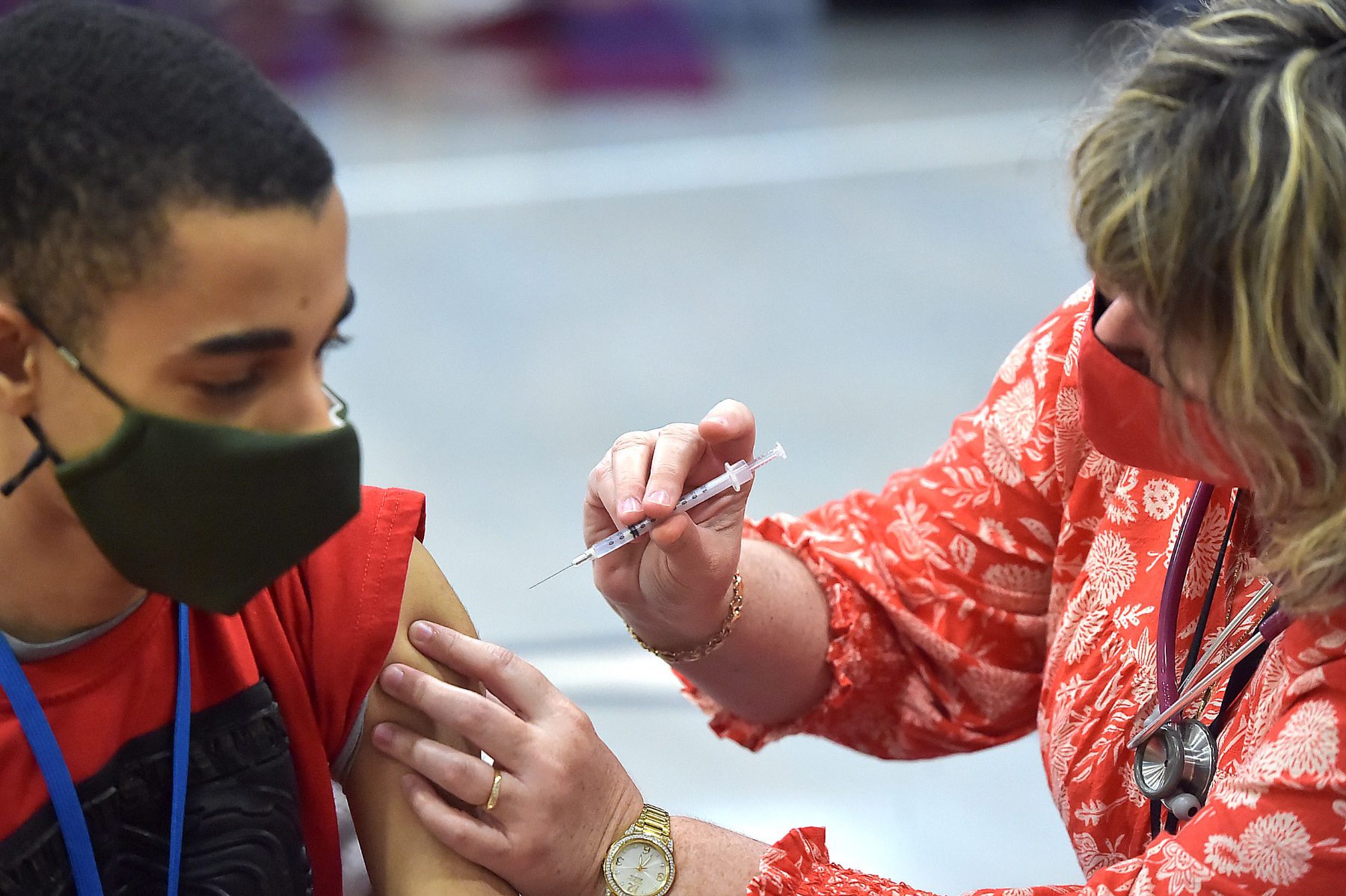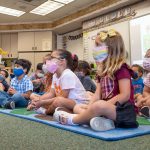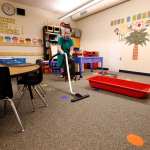Lisa Kern thought she had a few more years left before retiring.
She had worked as a school nurse across an entire district in Central Florida for 32 years, helping kids get flu shots, managing medical concerns and crafting food allergy safety plans. She loved her job and felt deeply tied to the community. Both her children graduated from the Pasco County School District, where she worked. Her granddaughter is a student there now.
But after 2020, Kern, 62, realized she couldn’t keep going.
“The circumstances we were faced with, that probably pushed me in the direction of retirement a bit sooner,” she said. “Nurses across the spectrum — not just school — are leaving the field. Teachers, too. It’s been hard. It’s been very difficult.”
Many school nurses say they — like health care professionals in all sectors — have burned out after a year of running point on coronavirus mitigation, other responsibilities, and addressing indirect health consequences of the pandemic, such as delays in kids getting other critical vaccines or soaring mental health concerns. Per CDC data, children’s vaccinations dropped precipitously in 2020, as more families skipped regular wellness checks. That adds to the risk of spreading other preventable infections through the classroom.
Now, as schools reopen even with a surging Delta variant, those challenges are reemerging. Many school nurses say they are afraid, exhausted and unsure how to plan for the year ahead.
“Some days I want to stay in bed with the covers over my head. I was looking at the calendar today and I thought, ‘OK, four weeks from today I’ll be back in school — what’s it going to look like? Do I want to go?’” said Robin Cogan, a New Jersey-based school nurse. “I’m concerned about my colleagues. I’m concerned about kids. I’m concerned about the community.”
School nurses — a workforce of almost entirely women, who are typically paid less than their hospital-based counterparts — serve as a one-stop shop for any assortment of ailments students might face: mental health concerns, chronic illnesses, playground scrapes. They monitor cases of strep throat and other common childhood infections to keep it from spreading through the school.
But in 2020, they became schools’ first line of defense against COVID-19 outbreaks: serving as full-time contact tracers, coronavirus testers, disease-mitigation specialists and, eventually, vaccine administrators. Last year, Kern said, COVID-19 consumed her job. Finally, the nursing team figured out a system to make in-person schooling during a pandemic tenable, if not sustainable.
“We had mask mandates in place. We had specific protocols in place that we were following for social distancing. There was a lot of work the district did to create a safe environment for students,” she said.
The COVID-19 vaccine offered a glimmer of hope of that by fall of 2021. But a new surge in cases coupled with a lagging American vaccination campaign has dimmed that optimism. As schools across the country reopen, and parents worry about the risk to children, school nurses are facing a workload once again overwhelmed by efforts to keep the pandemic at bay.
Students younger than 12 are not yet eligible for the COVID vaccine. And even among middle and high school students, vaccination rates remain low: Just more than 40 percent of kids aged 12 to 14 have gotten at least one dose of a COVID-19 vaccine, per data from the Centers for Disease Control and Prevention. About 50 percent of people between ages 15 and 16 have gotten at least one shot. While most states are not tracking how vaccination rates of young people compare across races, what little data exists suggests that White children are far more likely to have gotten their shots than Black or Latinx kids.
The Biden administration is calling on school districts to host on-site vaccination clinics for students and eligible family members, a policy also endorsed by the National Association of School Nurses. School nurses would likely play a lead role in those efforts.
Many told The 19th they are unsure about what role they can play in encouraging students and parents to get vaccinated — they don’t know how to persuade vaccine-resistant families to get a shot. If a school even has a nurse (between a fifth and a quarter of schools have no part- or full-time nurse on staff), many work in states such as Texas, Florida and Iowa, whose governments have prohibited in-school mask requirements and otherwise limited what they can do to address COVID-19.
Others don’t believe it is their job to argue in favor of vaccination, but simply to make families aware of the option — even though a vast body of evidence clearly shows the shots offer high levels of protection that outweigh any risks.
“Our nurses run the spectrum from feeling like they’re vaccine advocates, or trying to advocate where students can receive vaccines, all the way to the end of their jobs is just simply to report vaccination statistics,” said Jennifer Kraschnewski, a professor at Penn State College of Medicine, who has studied ways the COVID-19 pandemic affected school nurses. “It’s very school-dependent and nurse-dependent, what the nurse feels their role is around vaccination.”
In general, young people are less vulnerable to COVID-19 complications than older adults. The Delta variant may have augmented the risk, though, with hospitals across the country reporting climbing numbers of pediatric cases. As a result, the CDC and National Association of School Nurses recommend that all people in schools this year wear masks while indoors. But states can set their own rules, directly influencing what’s possible.
“Schools will take direction from the state, and states will vary widely on how they recommend handling this,” Kraschnewski said.
Doreen Crowe, a school nurse, said her district west of Boston is already planning school-based vaccine clinics for the coming year. Indoor masking will be required for everyone. But in her community, a Democratic suburb in a blue state, it’s an easier load. Two-thirds of the county population is already fully vaccinated against COVID-19, per data from the CDC.
In many redder states, the conservative backlash toward mask mandates has created challenges for nurses, many of whom say they feel hamstrung and unable to do their jobs.
In both Texas and Florida — which have the nation’s second and third highest populations, respectively, and which together account for more than a third of new coronavirus infections right now — governors have told public schools that requiring indoor masking could jeopardize state funding. The Texas Education Association has also said parents can choose to keep sending their children to school even if they are identified as someone who was recently exposed to the coronavirus.
That creates a particular kind of challenge for nurses: balancing a job that requires caring for students and preventing disease outbreaks with state guidance that runs counter to those goals.
“There are a handful of things in Texas we have been told we are not allowed to do, and that’s hard because these are things we know work,” said Becca Harkleroad, a school nurse in Central Texas and advocacy chair for the Texas School Nurses Association. “You can’t ask people to wear a mask. You can’t require people to stay home. You can’t require people to get tested. I felt safer last year coming back to school than I do this year.”
Harkleroad and her team of nurses have all been vaccinated. She has told her staff that they are “ethically and duty bound to advocate for our families to vaccinate their kids if they’re able.” But she’s unsure how to convince people who have not gotten a shot yet to do so now. And even more critically, she feels unable to plan for a safe school year.
“We need every tool in our toolbox, and it feels like they’re getting taken away,” she said.
Her district’s plan changes almost daily, based on what the state has allowed. They are so focused on simply trying to devise some kind of COVID-safe protocol that she can hardly imagine having the resources or bandwidth to host something like a vaccine clinic.
And on top of their work, they’ve faced verbal harassment from parents critical of mask requirements, or skeptical of vaccines. They’re exhausted.
“Our nurses have been yelled at a lot and cussed at. That’s stressful and undesirable, but it’s thrown on top of all the things we already do as school nurses,” she said. “In addition to the stuff we already do, having COVID placed on top of that — it’s exhausting. It’s physically and mentally exhausting.”
Meanwhile, many worry, the coming year will bring concerns well beyond COVID-19 mitigation: other school health concerns have been exacerbated by the pandemic. Nurses expressed worries about how to address student mental health, which experts say has suffered over the past year. Already, school nurses were frequently the first point of contact for students experiencing physical symptoms of anxiety or depression.
“The mental health piece, I think that’s going to be huge,” said Crowe, the Massachusetts school nurse. “School nurses provide a lot of mental health and behavioral interventions and I suspect we’ll see a lot more of that.”







